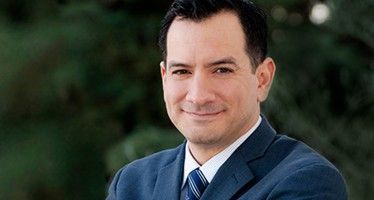Immigration reform all but dead for 2013 and 2014
Shocked by their poor showing in the 2012 presidential election, Republicans looked for ways to change their brand. The first idea: Embrace immigration reform. A slew of Republican lawmakers and influential conservative intellectuals came out in favor of granting citizenship to illegal immigrants. Even Sean Hannity said that he had “evolved” on the issue. The once unthinkable—Republicans supporting amnesty en masse—became a political reality.
Efforts to reform the system began in the U.S. Senate. Republican Sens. Jeff Flake, John McCain, Marco Rubio, and Lindsey Graham worked with four Democratic Senators to draft immigration legislation. Ultimately, the 844 page bill could be summarized thusly:
The Gang of Eight bill would essentially revamp every corner of U.S. immigration law, establishing a 13-year pathway to citizenship for millions of undocumented immigrants, with several security benchmarks that have to be met before they can obtain a green card. The measure would not only increases security along the border, but requires a mandatory workplace verification system for employers, trying to ensure no jobs are given to immigrants who are not authorized to work in the United States.
It also includes a new visa program for lesser-skilled workers – the product of negotiations between the U.S. Chamber of Commerce and labor unions. And it shifts the country’s immigration policies away from a family-based system to one that is focused on more on work skills.
It passed the Senate in June 68-32, with 14 Republicans going every Democrat in supporting the bill. The compromise was such an accomplishment that the New Yorker even wrote a long piece describing how it came about. Then all eyes turned to the Republican-controlled House.
Most, if not all, Democrats have supported immigration reform that includes pathway to citizenship provisions. House Republicans also showed a relatively strong amount of support for reform. Last month, CalWatchdog wrote about some California Republicans moving to the left on immigration reform, despite the small likelihood of any legislative action actually occurring:
Although Issa, Valadao and Denham all would like to see some form of immigration reform happen soon, it’s unlikely to occur this year. House leadership has indicated that their focus will be on passing fiscal reforms over immigration, and the recent government shutdown left many Republicans unenthusiastic about compromising with their Democratic colleagues.
Now it appears as though reform is all but certain to fail this year:
House Speaker John Boehner signaled Wednesday that comprehensive US immigration reform was dead this year, saying the existing Senate measure offering a pathway to citizenship would not get a vote.
And although it’s dead for 2013, advocates say that they will continue to pester Republican lawmakers in the House until they take up some form of immigration reform legislation. But those hoping for reform next year shouldn’t hold their breath.
Consider the Republican Party’s bargaining position. If problems with Obamacare continue, then it will almost certainly result in losses for Democrats in the House and Senate. Vulnerable red-state Democrats in the Senate—swept into office during Obama’s wave election of 2008—are particularly vulnerable because of their previous support for the law. Why would Republicans take up immigration reform—a politically fraught issue to begin with—when they can simple move on the legislation in 2015, when they have more politically sound ground to negotiate from.
Immigration reform in 2013? Not happening. In 2014? Doubtful. In 2015? It might just go down. Keep your eyes on the midterm results.
Related Articles
Rendon’s Assembly speakership sweeps in change
Assemblyman Anthony Rendon’s swearing in as speaker on Monday signaled a fresh start as optimism warmed over the Capitol. At
Wikileaks and California
Dec. 16, 2010 By JOHN SEILER The WikiLeaks revelation of U.S. government secrets continues to make front pages and cause
Is San Diego safest big city? Or having a police crisis?
This good news got prominent play in California’s second-largest city this weekend: For the fourth year running, San Diego had




